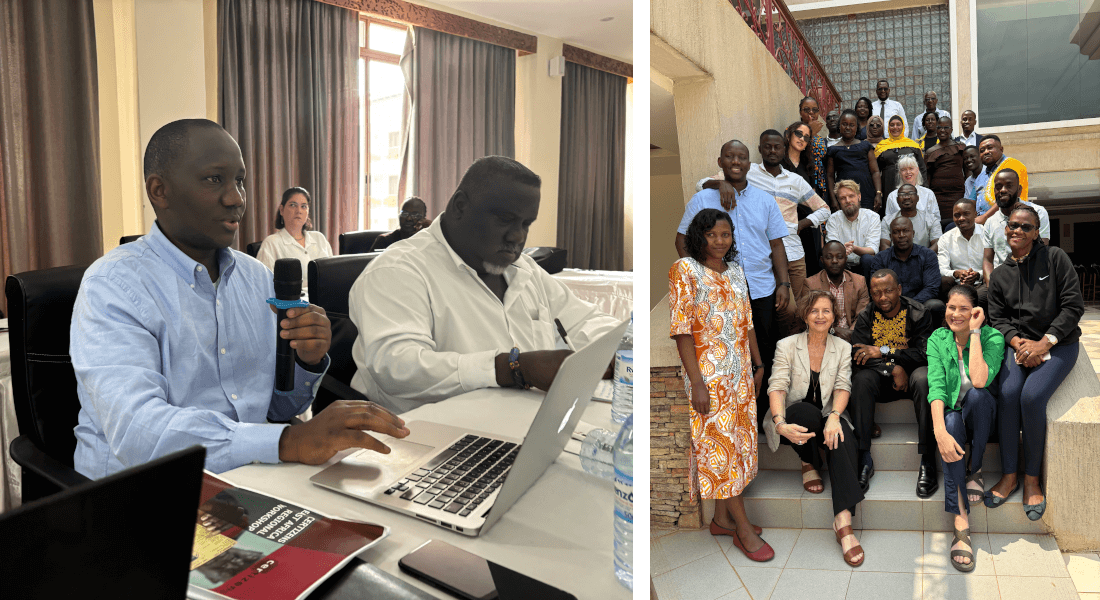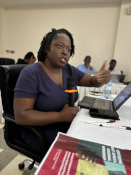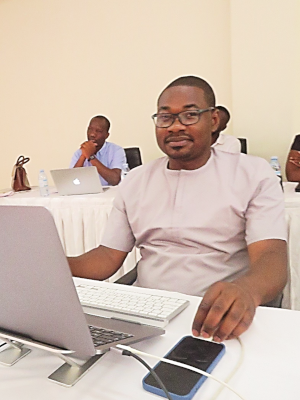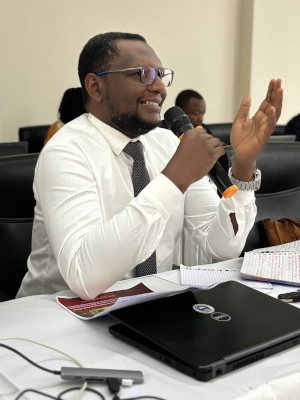Regional Workshop on Changing ID Systems in East Africa
In January 2024 CERTIZENS convened an East Africa Regional Workshop in Kampala with the title 'Changing ID Systems in East Africa: Histories, Policies and Practices and the Reshaping of States and Citizens'. Besides the discussion of fifteen papers in five panel sessions, two roundtables and two keynotes, the workshop offered an important platform for encouraging further research on a diversity of ID systems dynamics and approaches within and beyond the East Africa region.

The workshop brought together mostly regionally-based scholars but also those based elsewhere, including both more established and younger emerging researchers as well as some practitioners, working on related questions in countries including Cameroon, Ethiopia, Ghana, Kenya, Rwanda, South Africa and Uganda, but also Brazil.
Fifteen papers were presented in five thematic panel sessions under the following themes: Contested state, non-state and citizen modes of identification/certification authority; Birth Registration: histories, policies, effects; Minorities, statelessness and citizenship; Digitisation and national ID reforms; and Identification institutions, policies and practices.
Two roundtables were also convened. These adopted a wider lens on concerns beyond specific themes or single empirical cases. The discussions were aimed at drawing on and optimising the benefits of combined reflections on some of the bigger issues. The two sessions were on: Changing ID systems in Africa and their implications, and The work of comparison: expanding perspectives on certifications of citizenship.
In addition, we were fortunate to have two internationally significant scholars in the field as keynote speakers. Dr Sam Balaton-Chrimes (Deakin University, Melbourne) presented a conceptually and methodologically provocative keynote on Certificates, registers and epistemic freedom in East Africa. This examined the particular epistemological forms shaping population registers in the region (and in general) and their various theoretical and material implications. Professor Keith Breckenridge (WITS University, Johannesburg) provided a differently provocative talk on Citizenship or Trust? which addressed the challenges of fostering trust – and trustworthy identification systems – in multi-dimensional cultural-political-economic arenas common within African contexts.
We plan to develop the various Workshop papers further for a joint edited publication. But besides this more ‘paper’-based output, the Workshop offered an important platform for encouraging further research on a diversity of ID systems dynamics and approaches within and beyond the East Africa region. Ensuring an atmosphere of welcome and openness was key to providing a generative space for rich ‘cross-fertilisation’ and potential collaboration among participants from a wide range of geographies, disciplines, types of institutions, conceptual and methodological approaches, empirical cases, and thematic priorities. Success with this creative collage can be measured by some of the appreciations received after the Workshop.

Naigwe Kalema (PhD scholar at University College London (UCL) Institute for Innovation and Public Purpose, London), working on the implications of global public-sector Digital Transformation Policy Initiatives in Uganda and elsewhere, shared with us her thanks “for such a wonderful experience at the workshop. I really appreciated the opportunity to be a part of the workshop and meet and learn alongside so many wonderful researchers. It was a great experience, and I learned a lot from everyone there.”

Dr. Georges Eyenga (Cameroonian scholar and post-doctoral fellow at the Wits Institute for Social and Economic Research (WiSER) in Johannesburg), working on civil identification and privatisation in Cameroon’s 2016 national ID card reform, let us know that “The work experience in Kampala was wonderful, and I was glad to see how other researchers are exploring the issue of civil identification.”

Dr. Abudul Mahajubu (Mountains of the Moon University in Western Uganda), working on contested citizenship and crisis with respect to Nubian identity in Uganda in the post-independence period (1962 – 1995), expressed his appreciation “from the deepest part of my soul…for the opportunity I was accorded to share my conversation on the Uganda Nubi. The feedback was timely and I commit myself to work towards improving the paper to reach the best readable and publishable standards.”
The combined CERTIZENS convenors are understandably proud of the outcome so far.
Amanda Hammar
Copenhagen, April 2024
